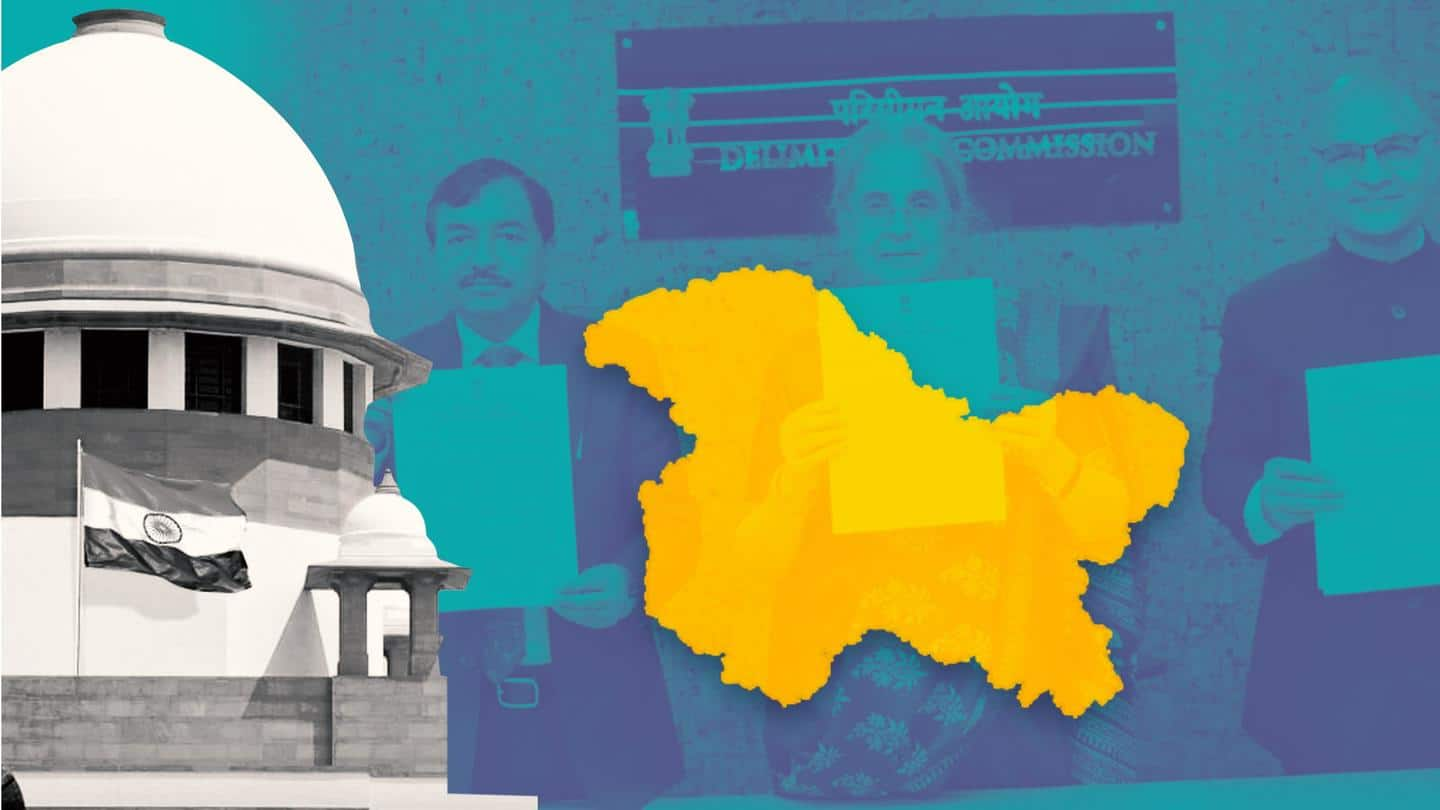
Jammu and Kashmir delimitation: SC seeks Centre's reply on plea
What's the story
The Supreme Court on Friday sought the Centre, Jammu and Kashmir administration, and the Election Commission of India's responses within six weeks on a plea challenging the delimitation exercise in the union territory to increase the number of Assembly seats in Jammu and Kashmir from 83 to 90.
The government's decision to constitute the Delimitation Commission was challenged by two Kashmir residents.
Context
Why does this story matter?
The Delimitation Commission's decisions were criticized by the Valley's mainstream parties as contrary to the population ratio, the Jammu region has got more seats compared to Kashmir Valley.
Now, Jammu with 44% of the population will get a 48% share, while Kashmir with 56% population will get a 52% share.
Earlier, Kashmir had a 55.4% share in seats and Jammu had a 44.5% share.
Scheme of Constitution
Petition filed by two Srinagar residents
The counsel appearing for petitioners Haji Abdul Gani Khan and Dr. Mohammad Ayub Mattoo said "contrary to the scheme of the Constitution, this delimitation exercise was carried out and alteration of boundaries and inclusion of extended areas could not be done."
The SC bench, however, asked the petitioners why they didn't challenge the constitution of the commission when it was formed.
Article 170
Next delimitation in India to be undertaken after 2026
The plea sought a declaration that the increase in the number of seats in Jammu & Kashmir violates the Constitutional and Statutory Provisions, particularly under Section 63 of the Jammu & Kashmir Reorganisation Act, 2019.
Citing Article 170, the plea asked why is the UT being singled out when the next delimitation in the country would be taken up after 2026.
Seats increased
J&K Delimitation Commission's final notification
On May 6, finalizing its order for J&K, the Delimitation Commission recommended seven additional constituencies—six for Jammu and one for Kashmir.
This would take the total number of seats in the UT to 90 from 83. Kashmir Valley will have 47 Assembly seats and Jammu Division will have 43.
The erstwhile Assembly had 87 seats—46 in Kashmir, 37 in Jammu, and four in Ladakh.
Observation
Petitioners did not challenge abrogation of Article 370
Justices Sanjay Kishan Kaul and MM Sundresh noted that the petitioners have not challenged the abrogation of Article 370 of the Constitution and therefore pleadings concerning Article 370 are to be ignored.
The counsel who was making objectionable submissions was also told to choose his words properly and said that Kashmir was always part of India and just a special provision was removed.
Parliament
Court to hear matter next on August 30
When the court fixed the matter for hearing next on August 30, the counsel for the petitioners said by then there is a possibility of the delimitation report to be tabled in Parliament and become a civil court decree.
Responding to this, the bench asked, "If you are so anxious, why did you sleep for two years to challenge the earlier notification of 2020?"
Four other criteria
Population only one of criteria of delimitation: CEC
Meanwhile, Chief Election Commissioner Sushil Chandra asserted that the union territory has to be seen as "one unit" and "population is only one of the criteria of the delimitation."
"Physical conditions, communication facilities, public conveniences, and the administrative units of that area" have to be looked into as per provisions of the Delimitation Act and the Jammu & Kashmir Reorganisation Act.